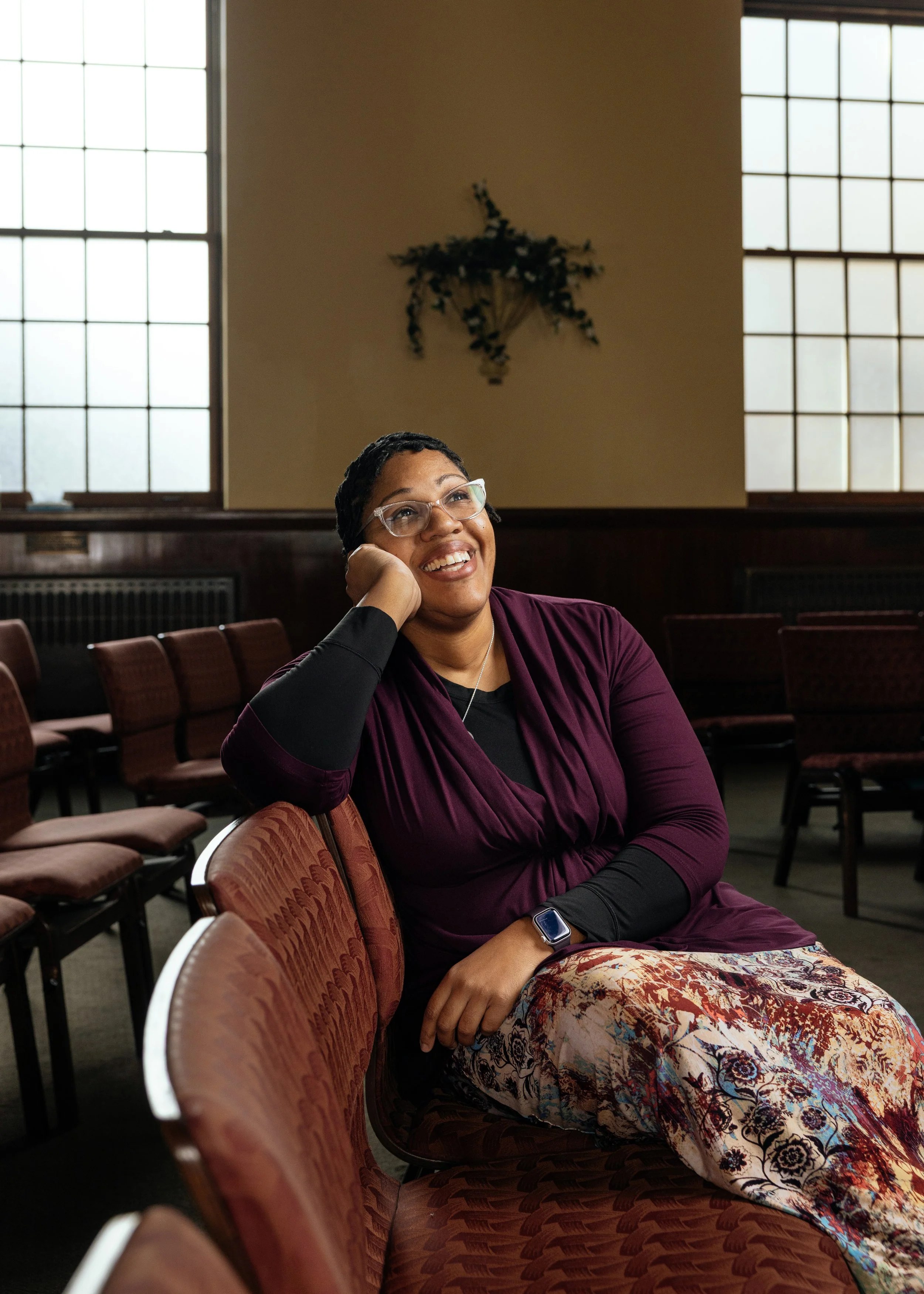“When I decided that Judaism was really the path that I wanted to use to explore this relationship with God, ritual and community, because that's what it came down to. I told my mom, I said, mommy, I think, I think I'm Jewish. And my mom said, we always knew you were a Jew.
…we struggled in the beginning because she felt like my becoming Jewish was actually saying, I don't want to be black or I want to be white. And, you know, I certainly didn't understand it that way.'
Because for me, at that time, it wasn't about race. It was about this relationship with God that I'm looking for a community to express it with. And I understand why it appeared that way because, she and I did not know any Jews of color.
Then I went to live in Milwaukee in Wisconsin.. and being away from home and being in a place with a much bigger Black population really helped me to start making sense of how I identify as a Black Jewish person. And again, it came back to those initial things that were really important to me. That's Seder. The idea that, Judaism is a liberatory tradition because, like, the foundation of our belief is we were slaves to Pharaoh. We stood up for that and God came and got us, you know.
And so, like, to me, that really resonates. Like, I'm a Jew because of my Blackness as well. And those two things go together. And in America, Jewishness and whiteness are so intertwined. And for me, that's, something I struggle with a lot. How do we disentangle these two things? How do you maintain the meaning of an identity that is an oppressed identity, a marginalized identity, and still have access to the privileges of the majority of the oppressing identities?
Rav Tiferet Berenbaum / Brookline, MA

